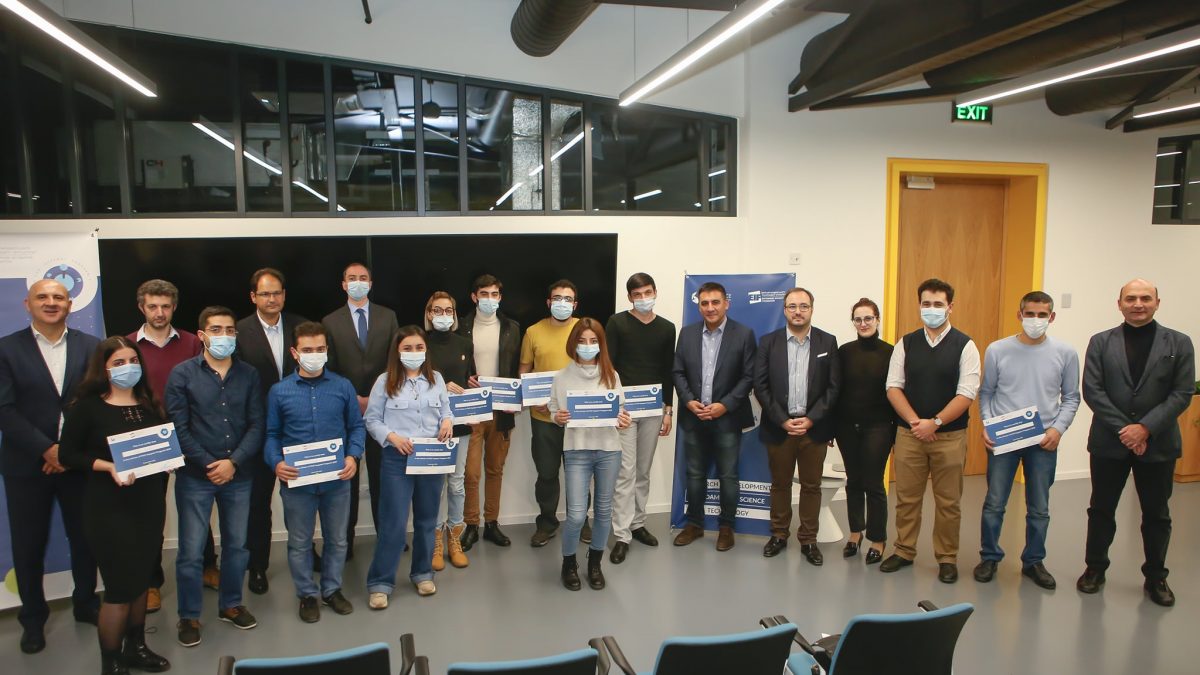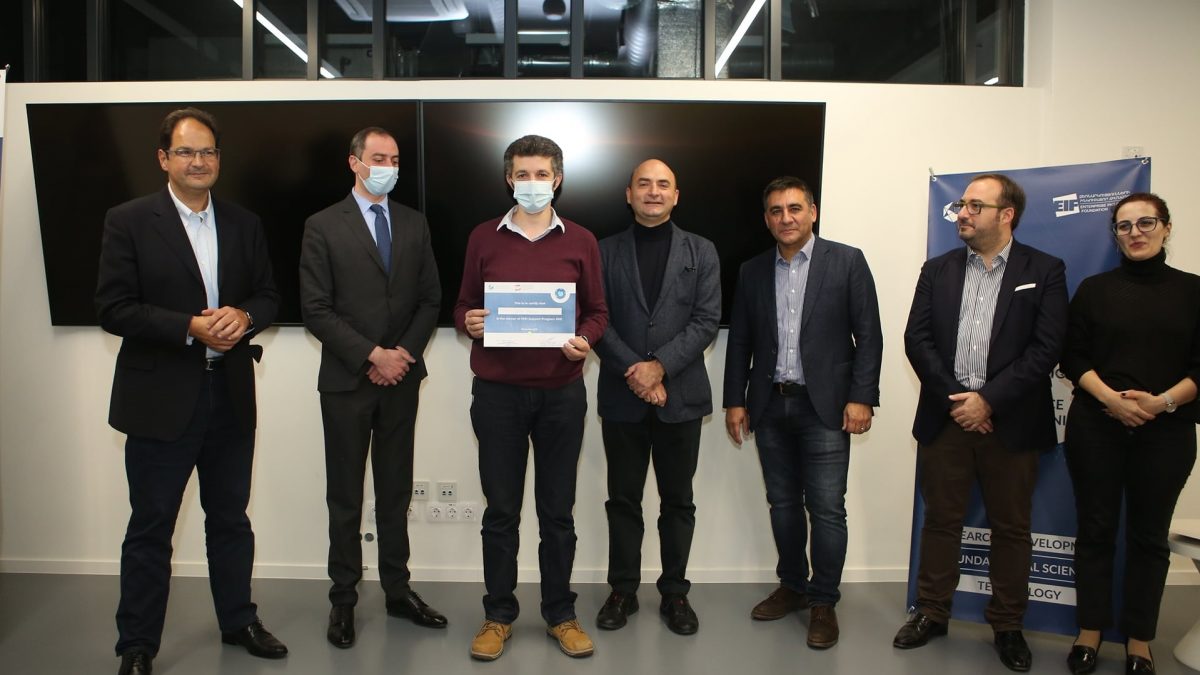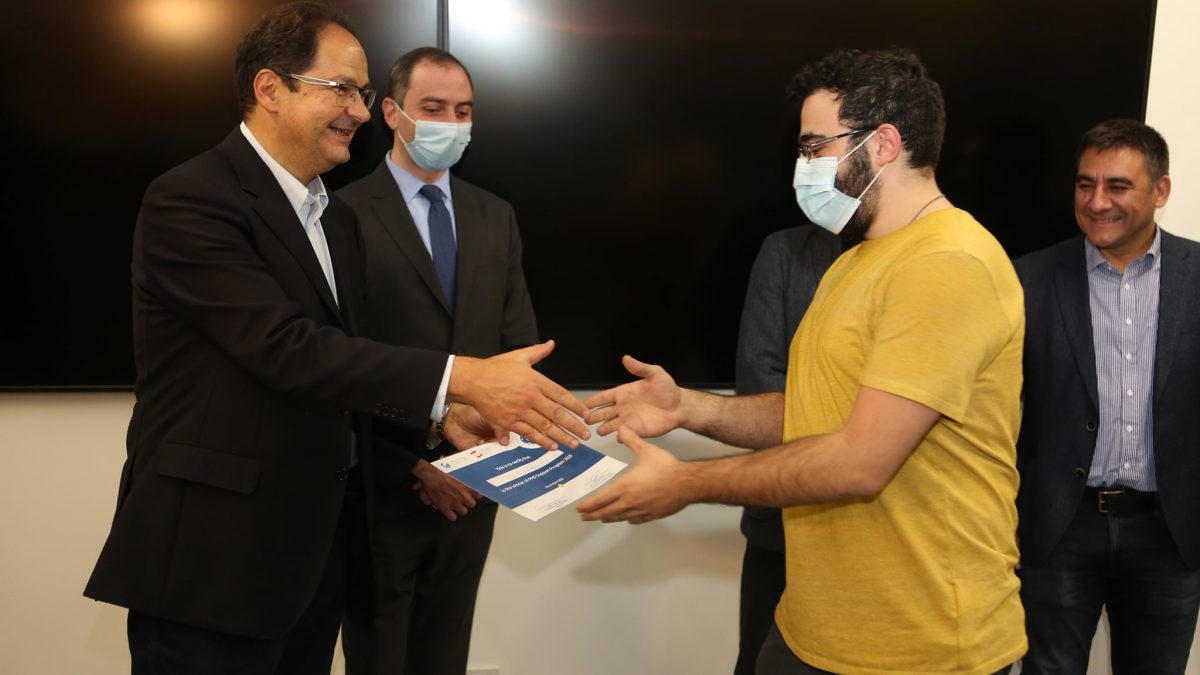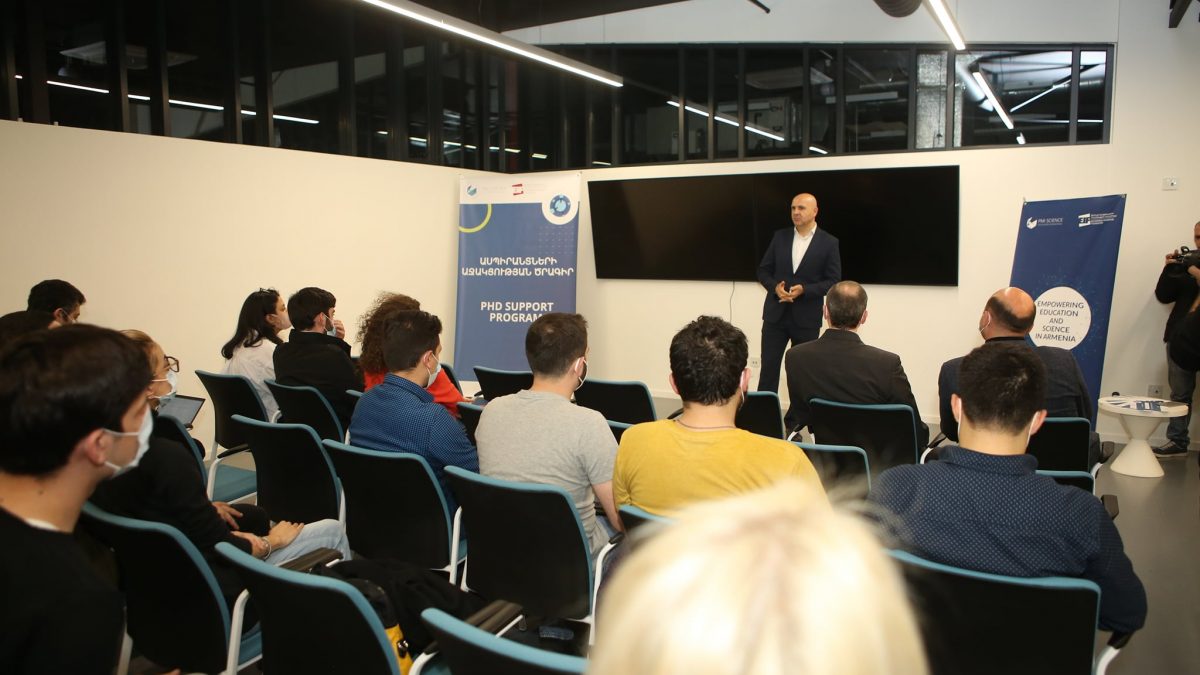EIF and PMI Science assist 10 promising PhD students on their science career
On November 10, the Enterprise Incubator Foundation (EIF) and PMI Science wrapped up the PhD Support Program 2021.
The program is designed to assist promising scientists financially to enable them to focus on research in areas such as materials science, alternative energy sources, applied and experimental physics, engineering, mathematics, heat transfer technologies, neuroscience, analytical chemistry.
This year too, the assistance has been awarded to 10 PhD students. They will be able to cooperate closely with leading international experts and mentors and secure funding for up to a year. Over the last 4 years, the PhD Support Program has provided financing to 40 PhD students and applicants.
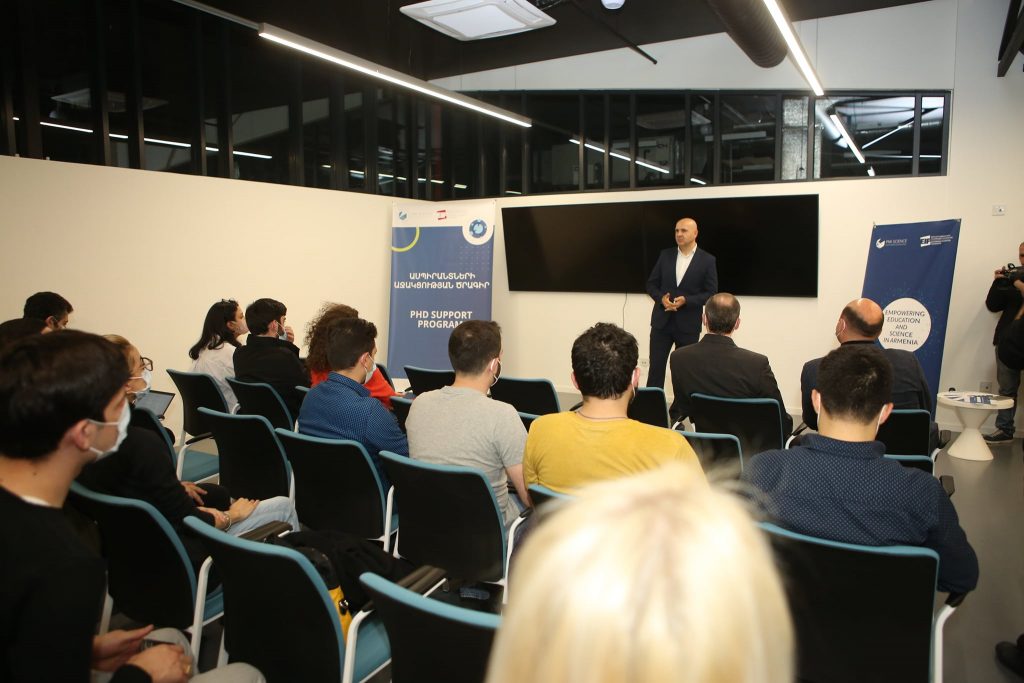
This year’s winners are:
- Areg Hunanyan – “Applications of novel two-dimensional tin oxides in gas sensors”, Yerevan State University
- Astghik Tsokolakyan – “Design and Fabrication of Metal Oxide Nanostructured Thin Films and Their Application in LSPR Biosensors”, A.B. Nalbandyan Institute of Chemical Physics
- Davit Hambaryan – “Control of the amplitude and phase of the microwave response from graphite microstrip as a element of metamateria”, Yerevan State University
- Gayane Ghevondyan – “Comprehensive study of the efficiencies of the ARICH detector and the charmless decays of B meson in the Belle 2 experiment”, A.I. Alikhanyan National Science Laboratory
- Hasmik Rostomyan – “Picosecond Resolution Heavy Ions Detector Guided with Radio Frequencies”, A.I. Alikhanyan National Science Laboratory
- Liana Vanyan – “Determination of glucose concentration effect on E. coli metabolism for improved biomass and biohydrogen production”, Yerevan State University
- Meri Iskandaryan – “Application of hydrogenases of Ralstonia eutopha as an anodic biocatalysts in biological fuel cells”, Yerevan State University (YSU)
- Narek Abelyan – “Combination of computational approaches for design of new multi-target agents against the antibiotic-resistant Pathogenic bacteria”, Russian-Armenian University
- Olgert Dallakyan – “Structure and properties prediction of semiconductors and metal content materials with computational methods”, Russian – Armenian University
- Siras Hakobyan – “Assessment of signaling pathways states in cancers using integrative genomics”, Institute of Molecular Biology NAS RA
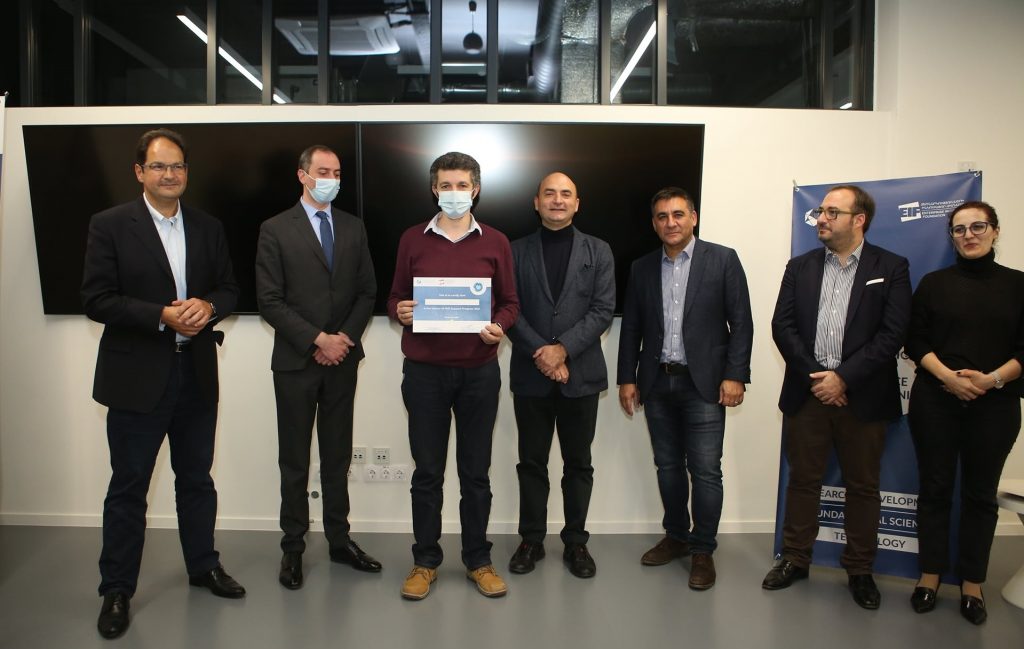
***
Check out below the impressions of Hasmik Rostomyan and Liana Vanyan, after becoming PhD Support program fellows.
Hasmik’s project is called “Picosecond Resolution Heavy Ions Detector Guided with Radio Frequencies”. Together with her scientific group and in collaboration with colleagues from Japan, Germany, Scotland, and the USA, Hasmik has been part of the development of a new type of a single photon/electron sensor with a picosecond time resolution, as well as the radio frequency timing technique.
“We have also researched their possible applications in hypernuclear studies,” said Hasmik. “I am currently studying and researching software to better apply our device”.
This detector and timing technique will be unique in terms of accurate measurement of time.
“They can be used not only for understanding the nature of exotic nuclei (hypernuclei), but also in other nuclear research questions, as well as in astrophysics,” explained Hasmik.
The assistance she has received in the framework of the PhD Support Program is a huge source of motivation. “Still, there is much more to be done,” added Hasmik.
According to her, the most difficult thing for a scientist is to describe their research in a way that is comprehensible to everyone. “Use your critical thinking,” Hasmik recommended, “This will help to visualize your research, and then, you can explain it better”.
Liana Vanyan is working on the topic “Determination of glucose concentration effect on E. coli metabolism for improved biomass and biohydrogen production”.
“The switch of waste to energy is the great solution for limiting fossil fuels, their manifold damages, and waste volumes,” said Liana. “Biohydrogen is a type of renewable energy, and it can be produced by bacteria during utilization of lignocellulosic wastes.”
She is studying the possibility of using spent coffee grounds and coffee silverskin in the process of biohydrogen production, in particular. “No one has investigated yet the effect of varying concentrations of the carbon source, especially glucose on cell metabolism and bioenergetic parameters,” Liana pointed out.
She plans to use the awarded assistance for purchasing lab consumables, which she needs to complete the project. “There is another opportunity too,” added Liana. “I could attend international conferences and establish contacts with other scientists, start new collaborations”.
As for her fellow Armenian scientists, Liana has a short, but valuable piece of advice: “Choose an unresolved problem for your project,” she said.
The PhD Support Program is supporting research in relevant areas and thus enabling Armenian scientists to establish themselves as providers of modern solutions for modern problems. This makes it possible for Armenia to make a name and a place in the global scientific arena. With financial assistance, the PhD Support Program provides new opportunities for the scientists, from securing necessary equipment to networking with distinguished experts.

